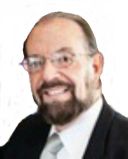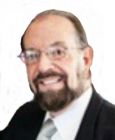Self-Control
“Laws” of Personal Power
How to create and use the personal power you have waiting.
Posted May 2, 2024 Reviewed by Michelle Quirk
Key points
- Research suggests that many of the most successful and influential people have a high need for power.
- Power can used constructively or abused.
- Application of the "laws" of constructive power can help you harness power you never knew you had.

What motivates you? There are arguably three major need-based theories of human motivation: (1) Abraham Maslow’s hierarchy of needs ranging from basic physiological needs to the seldom-achieved need to actualize your full potential; (2) Herzberg’s Two-Factor Theory, which differentiates hygiene factors that serve to satisfy core needs from factors that serve to motivate people to go above and beyond; and (3) David McClelland’s Theory of Human Motivation, which asserts there are three fundamental drives that serve to motivate. They are the need for affiliation and interpersonal connection, the need to achieve by overcoming challenges and problem-solving, and the need for power. Though not immediately obvious, the theme of personal power is central to all three of these theories of need satisfaction and human motivation. But it was McClelland who seemed to understand the critical role power played more so than the others.
The Need for Power
McClelland was a Harvard icon. He was a collaborator with Henry Murray, a potential nemesis for B. F. Skinner, a faculty member from 1956 to 1986, and founder of an international behavioral sciences consulting firm. He was my teacher, advisor, sponsor, and friend. We would have spirited discussions during our Wednesday lunches while sitting at the “Long Table.” It would take me years to understand the variety of roles power played in the lives of extraordinarily successful people. In fact, McClelland asserted that those who rose to great personal and professional success had acquired, more than a need for achievement, the need for power! It seemed a virtual sine qua non to reach the highest echelons.
Power consists of three dimensions: the ability to influence or control (1) other people, (2) the environment within which one lives or works, and (3) oneself (self-control). Power can be used constructively or it can be abused. Listed below are some selected “laws” for acquiring and constructively using personal power drawn from the research of McClelland (1975) and others.
Selected “Laws” of Personal Power
- Be inquisitive. Be confident in what you know, but humble regarding what you don’t know. Some of the greatest revelations have come from taking knowledge from one area and applying it to another.
- As you think, so you act; as you act, so you will become. Attitudes become self-fulfilling prophecy. If you think you can or you think you can’t, you are right, according to Henry Ford. Or, in the words of Jedi Yoda, “Do or do not, there is no try.” But it all begins with the projection of confidence and competence and can lead to the halo effect wherein people simply assume you are competent and deserve respect.
- Fortitude is more important than aptitude. As Calvin Coolidge once noted, “Persistence and determination alone are omnipotent.”
- As you practice, so you play. This old sports aphorism applied to power as well. Both mental and physical rehearsal prepare your brain and your body for action.
- Exercise strengthens personal power. Physical exercise increases your strength, energy, endurance, tolerance for discomfort, and ability to learn through enhancing neuroplasticity (Everly & Lating, 2019).
- Rest recharges personal power. The acquisition and exercise of personal power expends energy, stresses the body, and may even break down bodily tissues. The body must clear itself of waste products and create an opportunity for cellular growth. Rest and sleep provide that opportunity.
- Nutrition fuels personal power. Rest alone is not enough. The brain and body rebuild themselves using nutritional building blocks. “You are what you eat,” proclaimed a sign in a meat market in the early 1900s. The acquisition and exercise of personal power require energy and the building blocks of physical recovery.
- Interpersonal connection is a force multiplier. Beyond the control of essential elements, you can extend your “reach” using collaboration with, and delegation to, others.
- Communication is essential. According to author John Rohn, “If you just communicate, you can get by. But if you communicate skillfully, you can work miracles.” Warren Buffet said enhancing your communications may be the best personal investment you can make (Everly & Athey, 2022).
- Pick your battles carefully. Virtually every aspect of life has the potential for conflict. Conflict drains resources and is often predicated upon injured ego and impulsive action rather than true need or material injury.
- “Know the enemy as you know yourself,” Sun Tzu wrote in his text The Art of War (Sun Tzu, trans. 1910). If you must engage in conflict, know the opposition. Past behavior often predicts future behavior.
- Take appropriate responsibility for your failures, and share credit for your successes. Failure can morph into future successes. Sharing credit acknowledges no one lives in isolation and builds social capital.
- Beware the Vandals! The Vandals were the Germanic tribes that sacked Rome in the 5th Century AD. In this present context, they are those who want to usurp your power. Some do it overtly (aggressive people), but most will do it in stealth—for example, frenemies (Everly & Lating, 2019).
- Embrace acceptance. Know when to walk away from people, places, or quests that cost you more than they return. Strategic withdrawal can be followed by advancement in another direction.
© George S. Everly, Jr., Ph.D.
References
Everly, GS, Jr. & Athey, A (2022). Leading Beyond Crisis. Washington, DC: APA
Everly, GS, Jr. & Lating, JM (2019). Clinical Guide to the Treatment of the Human Stress Response. NY: Springer.
McClelland, DC (1975). Power: The Inner Experience. NY: Irvington.
Sun Tzu (1910 trans. Lionel Gile). The Art of War. London: Britisk Museum.


